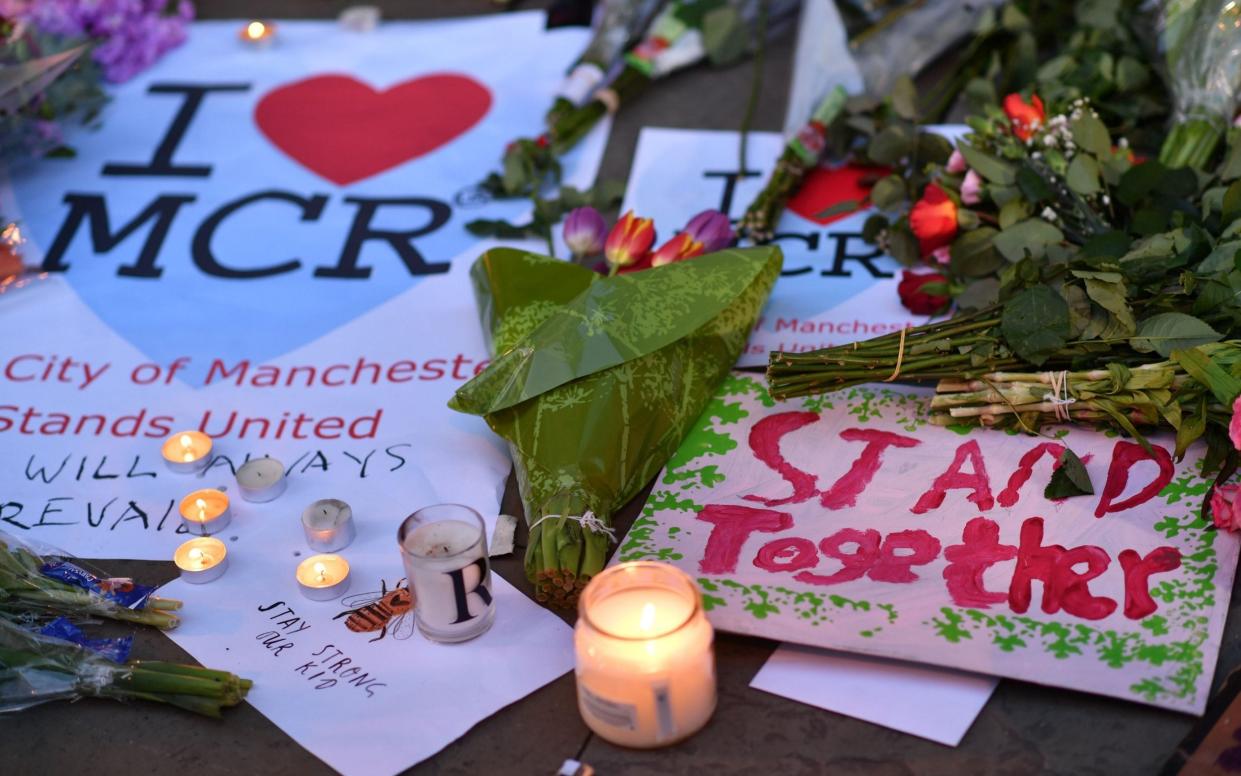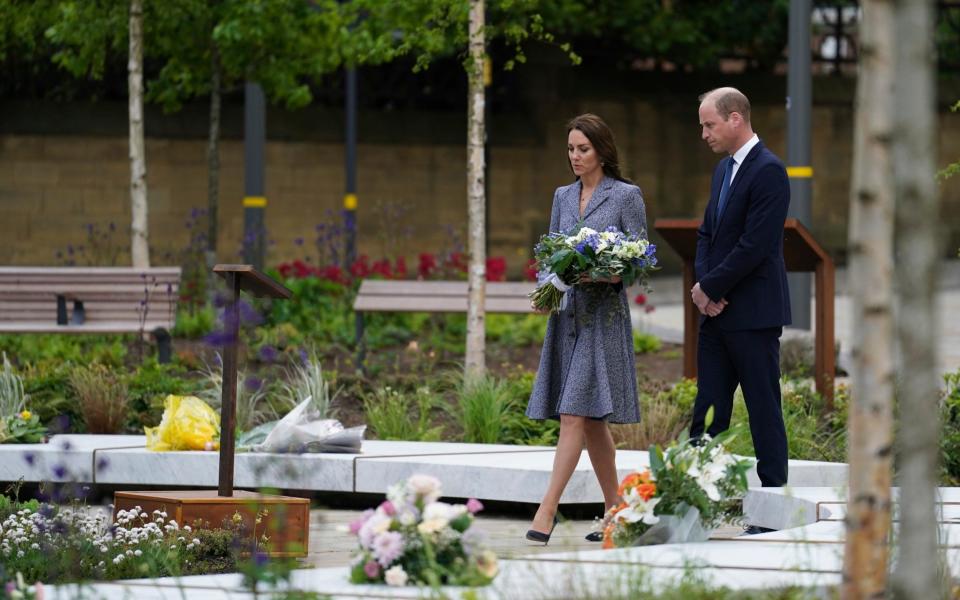‘Hatred will never win’: Boris Johnson marks fifth anniversary of Manchester Arena bombing

“Hatred will never win,” was the message given by Boris Johnson on the fifth anniversary of the Manchester Arena terror attack which killed 22 people and seriously injured 264 others.
The Prime Minister said the “bravery and defiance” shown by Mancunians had “touched the world”.
On May 22, 2017, Salman Abedi detonated a 32kg shrapnel-packed bomb in the foyer of the arena during an Ariana Grande concert, killing 10 children and 12 adults.
Salman died in the blast. His younger brother Hashem Abedi is currently serving a life sentence with a minimum of 55 years for helping orchestrate the “cowardly attack”.

In a statement released by Downing Street, Mr Johnson said: “Like the country, my thoughts are with the victims, families and friends of all those affected by the cowardly attack on Manchester Arena five years ago today.
“This was an act of terrorism against the freedoms we all hold dear, but as the people of Manchester demonstrated so courageously in the days that followed, hatred will never win.
“The bravery and defiance shown by Mancunians touched the world and just as we remember all those taken from us, we must remember and celebrate that triumph of love and community.”
Families of the victims have said they struggled to access any mental health aftercare in the immediate wake of the attack.
Dr Stuart Murray, whose stepson Martyn Hett, a 29-year-old social media manager, died in the blast, said he felt “embarrassed” to work as a GP because of the delays by the NHS in providing treatment.
He told BBC Radio 4’s Today programme: “Our early experience was - there was a moment in the car when I was shouting and screaming and saying 'how ridiculous this is that I'm having to pay privately to get the help for family members'.
“There was a guilt feeling that I was saying that, because they just needed the help, but thinking about how other people might be managing, and feeling embarrassed as a working GP, that this is the reality of the situation.”
“What we’re asking for is a simple thing that they (people affected by terror attacks) can not only be seen and triaged but when they need the help, that they get that treatment within six weeks.”
Dr Murray called for the Government to create a plan to ensure that people affected by terror attacks would be prioritised for mental health treatment instead of being subjected to a “postcode lottery” and a long, general waiting list.
The GP is among those in the Survivors Against Terror group who have written a report calling for survivors of terrorism to have an initial assessment within three weeks and to begin receiving treatment within six.


